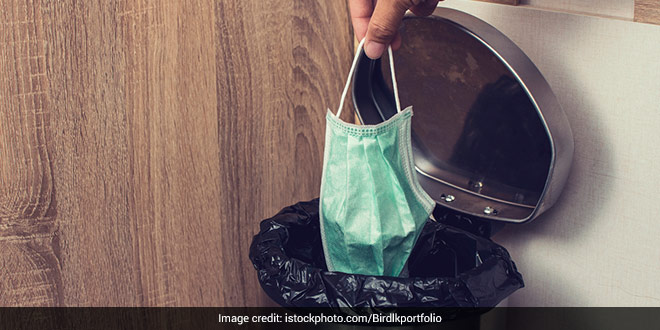Highlights
- Panchgani has won accolades for being one of the cleanest cities
- The residents are fined wit Rs. 500 on failing to segregate their waste
- Panchgani generates five tonnes of waste per day
New Delhi: According to the World Health Organisation (WHO), COVID-19 will be part of our lives for the time to come, even after the development of the vaccine. In this scenario, it is obvious that states will open up and as the lockdown rules ease, demand for all kinds of personal protective gears like masks, gloves, goggles and others by the individuals is only going to increase. The new post-pandemic reality will increase the quantity of domestic hazardous waste generation at the household levels. The government had framed new regulations about handling of COVID-19 waste in April, under the Bio-Medical Waste (BMW) Management Rules 2016, however, these rules are majorly targeting hospitals, isolation wards, quarantine centres and other medical centres. While experts seek norms and better waste management system for the disposal of COVID-19 medical waste at the household level, Panchgani, a small hill city in Maharashtra has taken to decentralised segregation or segregating of waste at the household level, to fight the rising COVID-19 waste in the city.
Talking about the efforts, Laxmi Rajendra Karatkar, President Panchgani Hill Municipal Council said,
There are about 15,000 households in my city but we get lakhs of tourists every year. There are some boarding schools too. Managing waste was a challenge earlier as there were several garbage points here. But with consistent efforts, we have been able to remove all garbage points and have developed a very practical and useful system of waste management. We have made waste segregation at source mandatory. Each household, shop and institution was directed to put the dry and wet waste separately and hand over to waste collectors in separated form only. When the pandemic hit the country, we decided to add the third bin component to the present system which is a waste bin hazardous items like medical waste, batteries, and other such items.
She further added that each household has been directed to store their medical wastes like medicines, syringes, masks, gloves, tissues and other items which could be contaminated with viruses in a separate bin. The waste collection is done every day by the civic body is sent to a Common Bio-Medical Waste Treatment (CBMWT) facility in the nearby town Satara, she said. She added that the municipal council has imposed a fine of Rs. 500 on failing to segregate the waste before handing it over to the waste collector. Ms. Karatkar said,
Bio-medical waste poses health hazards to the sanitation workers as they sort the waste by hand as they sell the metal, plastic, cardboard and other such items. They are already on the frontline and so more vulnerable to catching the virus. Putting them at more risk of being exposed to the virus is simply not acceptable.
Also Read: World Environment Day 2020: This Is How The Environment Is Healing During The COVID-19 Lockdown
Appreciating the efforts of Panchgani Hill Municipal Council, Swati Singh Sambyal, a municipal solid waste expert, based in New Delhi said that the municipal council follows a ‘best practice’ and provides a model for other cities. She said,
It is good that the Panchgani which is a tourist attraction has already boost up its waste management system and is focusing on inculcating the habit of using the three-bin system at home.
The civic body has established a group of waste collectors called ‘swachhagrahis’ who are playing a major role in raising awareness about the hazards of the bio-medical waste and importance of keeping it separate from other waste. 40-year-old Madhu, a swachhagrahi said,
The pandemic has brought a lot of change in the behaviour of the people. They have become more cautious in order to protect themselves from the virus. A lot of them also ensure that they dispose of their masks safely and collect the bi-medical waste in a separate bin or bag. But some are yet to get used to this practice. We remind them and tell them that this practice will keep them and us safe.
The city generates about five tonnes of waste per day out of which about four tonnes is green waste which is completely used in composting.
Earlier in May, a woman and her son who migrated from Mumbai were tested positive who received treatment at a hospital in Satara and currently there are no COVID-19 patient in Panchgani. However, the city has prepared itself for the worse and has converted one hospital into a COVID-19 hospital. Collection of waste from hospitals and other medical facilities is being done by trained professionals following the standard operating procedures for bio-medical waste handling and the waste is taken to the CBMWT, Satara every day.
[corona_data_new]



























